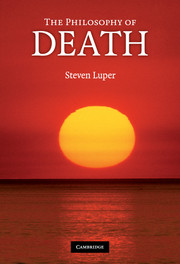4 - Challenges
Published online by Cambridge University Press: 05 June 2012
Summary
While life is good, it seems more would be better (even if each additional year is less valuable than its predecessor), and the better more life would be, the worse death is. This reasoning commits us to the harm thesis : death is, at least sometimes, bad for those who die, and in this sense something that ‘harms’ them. Even after our lives are over, it seems that we have a stake in what happens in the world, for posthumous events can advance (and others can impede) the projects we undertook while alive or our directives concerning what will be done with our property after we are dead. If this view is correct, we must accept the posthumous harm thesis, according to which events occurring after we die can harm us.
In this chapter I will set out challenges to both of the harm theses. The best of them are very old, dating back at least to the ancient Greek philosopher Epicurus and his follower Lucretius. I will show that some of these objections can be met, but most I will confront in the next two chapters.
THE SYMMETRY ARGUMENT
Epicurus and Lucretius posed challenges to the harm theses that have been discussed ever since (Furley 1986, Rosenbaum 1986, Segal 1990, Sedley 1998, Mitsis 1988, J. Warren 2001). In this section I consider Lucretius’ famous symmetry argument, and some modern variations of it.
- Type
- Chapter
- Information
- The Philosophy of Death , pp. 60 - 81Publisher: Cambridge University PressPrint publication year: 2009



